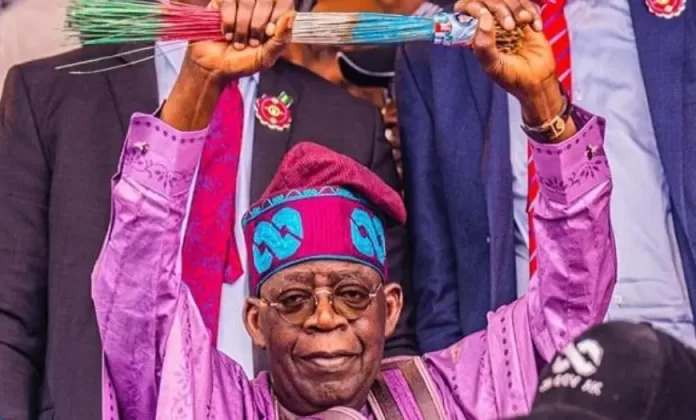The Independent National Electoral Commission (INEC) has waded into the 25% votes in FCT controversy.
The INEC said the presidential candidate of the All Progressives Congress (APC), Bola Tinubu, did not have to score 25 votes cast in the Federal Capital Territory (FCT) before being declared Nigeria’s president-elect.
The president-elect polled 8.8 million votes to beat Atiku Abubakar, the presidential candidate of the Peoples Democratic Party (PDP) who came second and Labour Party’s Peter Obi who came third in the 25 February election.
To be declared the winner of Nigeria’s presidential election, a candidate must also score 25 per cent of votes cast in two-third of the 36 states and the FCT.
The two-third of the 36 states is 24. Mr Tinubu won 25 per cent of the votes cast in 29 states but secured only about 18.99 per cent in the FCT.
Atiku in a joint petition with the PDP is challenging Mr Tinubu’s victory on, among other grounds, that the former Lagos State governor failed to secure the statutory 25 per cent of votes cast in two-thirds (24 states) and the Federal Capital Territory (FCT).
The petitioner, who urged the Presidential Election Petition Court in Abuja to either declare him the winner of the election or nullify it and order a rerun, also secured only 15.5 per cent of the votes in Abuja.
The Labour Party’s Mr Obi resoundingly won Abuja by securing 58.85 per cent of the votes in the capital city. Mr Obi, who came third in the election, is similarly challenging Mr Tinubu’s victory in court, on among other grounds, that the president-elect failed to secure up to 25 per cent votes in Abuja.
However, in a preliminary objection to Atiku’s petition, the electoral umpire, argued that there was no basis for the call for “a run-off and/or nullification of the said election.”
‘Why 25 per cent votes in Abuja is not mandatory’
Justifying its declaration of Mr Tinubu as the president-elect, the electoral umpire said by scoring 25 per cent of the valid votes cast in 29 states, Mr Tinubu “has satisfied the requirement of the constitution to be declared winner of the presidential election thus rendering the requirement of having 25 per cent of the valid votes cast in Federal Capital Territory unnecessary.”
Citing section 134 (2) (b) of the constitution, INEC contended that its declaration and return of Mr Tinubu “was not wrongful…having scored one-quarter of valid votes cast in 29 states which is beyond the constitutional threshold for declaration.”
It further argued that Nigeria’s constitution confers the status of a state on the FCT (Abuja) “and ought to be recognised as one of the states of the federation.”
The FCT “beyond being the Capital of Nigeria has no special status over and above the other 36 states of the federation to require a candidate in the presidential election to obtain at least 25 per cent of the votes cast in the FCT before being declared winner of the presidential election,” the electoral umpire explained.
Inferring the intentions of the framers of the Nigerian constitution, INEC said a presidential candidate is expected to have “a national geographical spread and broad acceptability from the Nigerian electorate and not meant to bestow a veto power on the FCT or its electorate over the election of a candidate at a presidential election who has otherwise scored one-quarter of the votes cast in two-thirds of the 36 states except in the FCT.”

